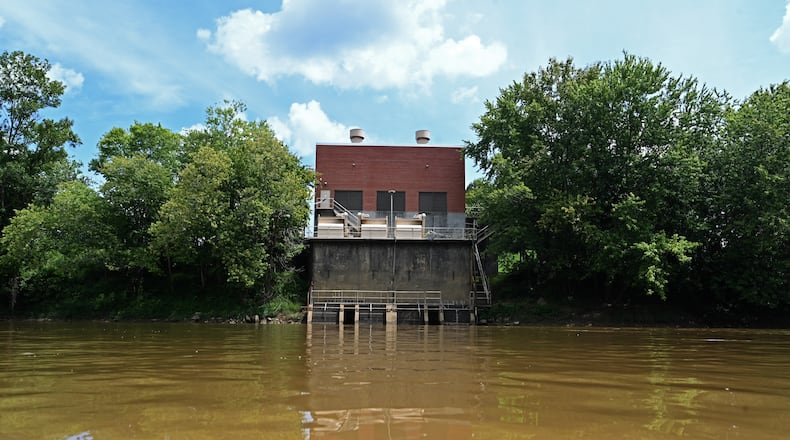The Georgia Court of Appeals on Monday stepped in to delay release of settlement terms between the city of Rome and five chemical companies over toxic contamination of the city’s drinking water while the manufacturers challenge a lower court’s order.
In its one-page filing, the appeals court did not discuss the merits of the case. The order to stay release of the records will prevent the city of Rome from disclosing them by noon Wednesday, as ordered last week by Floyd County Superior Court Judge Bryan Thomas Johnson.
On Friday, Johnson ruled that financial terms of a September settlement between DuPont, four allied chemical companies and Rome were not “trade secret” and that the terms are subject to disclosure to the public under the Georgia Open Records Act.
The Atlanta Journal-Constitution and Rome News-Tribune sought the financial terms after DuPont and the four companies settled litigation related to the release of chemicals known as per- and polyfluoroalkyl substances, or PFAS, that have contaminated Rome’s drinking water.
The compounds, found in firefighting foam, nonstick and water repellent materials and other goods, have been linked to cancer and other detrimental health and environmental impacts. The companies neither admitted nor denied wrongdoing.
Rome, which has battled dozens of chemical companies, flooring makers and the city of Dalton’s utility related to the contamination, plans to build a $100 million water treatment plant to ensure safe drinking water.
Credit: TNS
Credit: TNS
Johnson said in his Friday order that DuPont and its allies failed to establish that the settlement amount is a trade secret or that its release would disadvantage the defendants. Lawyers for the PFAS makers immediately filed notice of appeal, and on Monday the appeals court said the records will not be released “pending completion of the appeal or further order from this court.”
Johnson’s ruling was seen as a victory for public transparency under the state’s open records law. The Georgia Open Records Act requires local and state government agencies to release most public documents upon request, and governments typically release settlement agreements as a normal course of business.
The law includes certain exceptions for documents, including some matters that might be deemed trade secrets.
The Georgia First Amendment Foundation sharply criticized the DuPont effort as “outrageous” and an affront to the public’s right to know. Lawyers for the AJC and News-Tribune said in court last month that DuPont cannot produce a court decision from anywhere that supports its argument.
In an October hearing, an attorney for DuPont said the companies paid Rome a “disproportionately high” settlement compared to their level of responsibility as determined by scientific experts, and making public such information would harm the companies in pending class-action lawsuits.
In September, E.I. DuPont de Nemours & Co., the Chemours Co., the Chemours Co. FC LLC, DuPont de Nemours Inc. and Corteva Inc. settled with Rome. The companies then sued the city and the newspapers to prevent disclosure of the settlement amount.
More than 30 defendants have entered into a settlement agreement with Rome, including the five companies involved in the lawsuit over open records. These five companies all previously shared common ownership.
Rome will receive at least $233 million to address the PFAS contamination, based on the settlement terms released to the AJC so far. That includes $75 million from materials manufacturing giant 3M and $25 million from Dalton Utilities.
The settlement will also cover the cost of the new $100 million water treatment plant in Rome to ensure the safety of its water system. City officials initially implemented water rate hikes to pay for the facility, but those were rolled back in June when the settlement was accepted.
Makers of PFAS chemicals face a mountain of lawsuits and billions of dollars in potential damages nationwide. The companies themselves have a history of announcing their own settlement terms.
In June, three of the companies in this case — Chemours, DuPont and Corteva — announced they would pay $1.19 billion to resolve some other PFAS litigation. That same month, 3M announced it agreed to pay $10.3 billion to settle lawsuits claiming its PFAS chemicals contaminated hundreds of water systems around the country. Neither of those figures included the Rome settlements.
Keep Reading
The Latest
Featured






